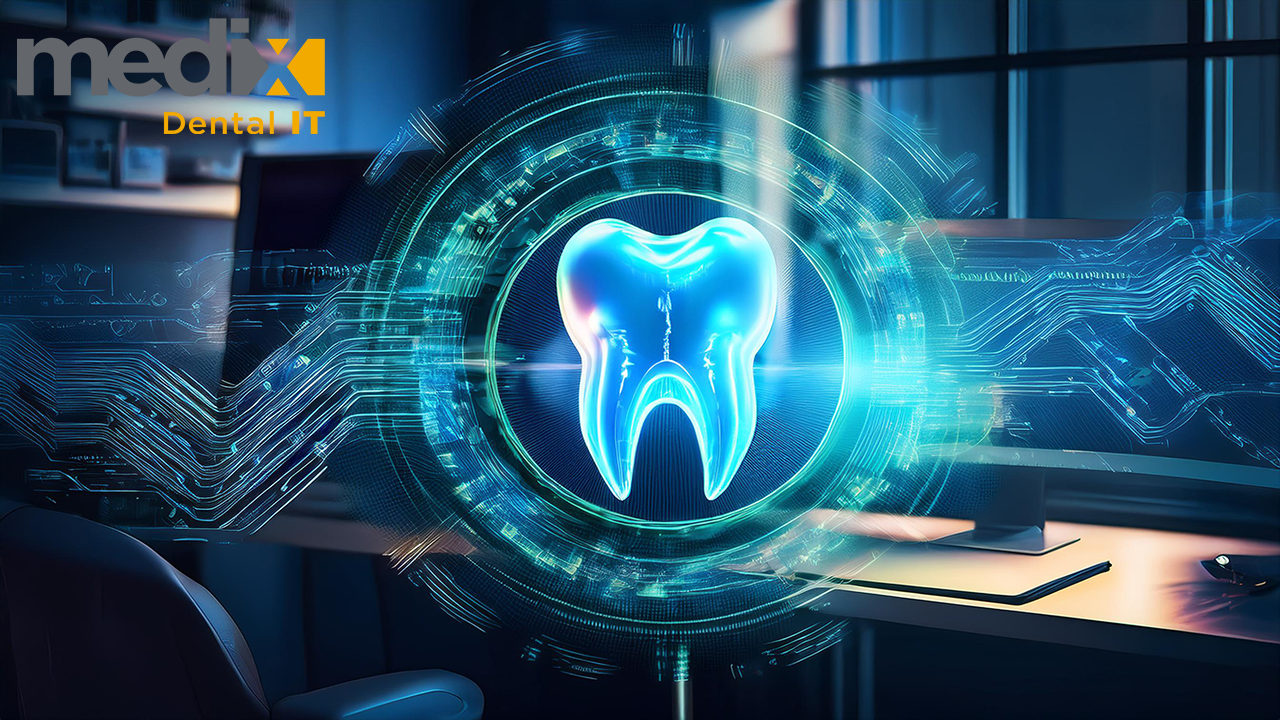
Artificial Intelligence (AI) has become a game-changer for many industries, and dental practices are no exception. With its ability to streamline operations, enhance patient care, and improve accuracy in diagnostics, AI is transforming how dental practices operate. Here are five impactful ways your dental practice can harness AI in 2024.
How Dental Practices Are Using AI
1. AI-Enhanced Diagnostic Imaging
AI is making diagnostic imaging more accurate and efficient. By using AI algorithms trained on vast datasets of dental X-rays and images, dentists can now detect early signs of issues such as cavities, periodontal disease, and enamel wear with greater precision. AI acts as a second pair of eyes, highlighting anomalies that might be missed in a traditional review, enabling earlier and more effective treatment. This early detection leads to better patient outcomes and minimizes the need for more invasive procedures down the line.
For instance, practices that want to stay ahead of these innovations can enhance their IT infrastructure by working with a specialized Dental IT Support provider like Medix Dental IT, ensuring that AI systems function efficiently and securely.
2. Intraoral Scanning with AI Precision
Gone are the days of uncomfortable dental impressions. AI-integrated intraoral scanning is revolutionizing how dentists create dental models. These advanced scanners can produce highly accurate 3D images of the patient’s mouth in just a few minutes. AI ensures the models are precise, which is crucial for creating orthodontics, crowns, and other dental prosthetics. This not only improves the patient experience but also ensures treatments are more effective and tailored to individual needs.
AI-enhanced scanners and other advanced technologies can benefit dental Service Organizations by reducing the margin for error, helping to standardize care across multiple locations, and improving the overall patient experience.
3. AI in Practice Management and Patient Engagement
AI isn’t just transforming clinical procedures; it’s also making dental practice management more efficient. AI tools can automate routine administrative tasks such as appointment scheduling, patient follow-ups, and billing. These tools can analyze patient behaviors to optimize scheduling, reducing no-shows and increasing efficiency. Furthermore, AI-driven communication tools can send personalized reminders and educational content to patients, helping them stay engaged in their oral care.
For example, integrating AI with a practice’s current Cybersecurity Assessments helps secure patient data and ensure compliance with regulations like HIPAA, while automating repetitive tasks helps free up staff for more important duties.
4. Teledentistry Powered by AI
With teledentistry becoming more popular, AI is playing a crucial role in making remote care more effective. AI platforms can analyze images and scans submitted by patients remotely, allowing dentists to provide preliminary diagnoses without the patient needing to come into the office. This is especially beneficial for those in rural or underserved areas, where access to dental care may be limited. Additionally, AI helps prioritize urgent cases, ensuring that those in need receive timely care.
Integrating telehealth with AI is helping bridge the gap in underserved areas. Harvard School of Dental Medicine has been a key player in showcasing how teledentistry and AI can work together to improve access to care.
5. AI-Generated Prosthetics and 3D Printing
The use of AI in designing customized dental prosthetics is another cutting-edge application. AI-driven software works in conjunction with 3D printing technologies to produce highly customized and precise prosthetics, such as crowns and bridges, in a fraction of the time it used to take. These AI tools consider a wide array of factors, including bite force dynamics and jaw movements, ensuring that the final product is not only a perfect fit but also durable.
Dental practices can significantly reduce patient wait times by utilizing Pearl’s AI Diagnostic Tool, which assists with producing real-time diagnostic data for use in prosthetic design and fabrication.
Final Thoughts from Tom Terronez
AI is reshaping the future of dental care by enhancing both clinical outcomes and practice management. By embracing these technologies, dental practices can improve patient care, reduce operational costs, and streamline processes. Whether it’s diagnosing oral health issues more accurately or improving patient engagement, AI offers tangible benefits to dental professionals and their patients.
If you’re considering implementing AI in your dental practice, now is the perfect time to explore these technologies and see how they can help your practice thrive.
Posted in Other

